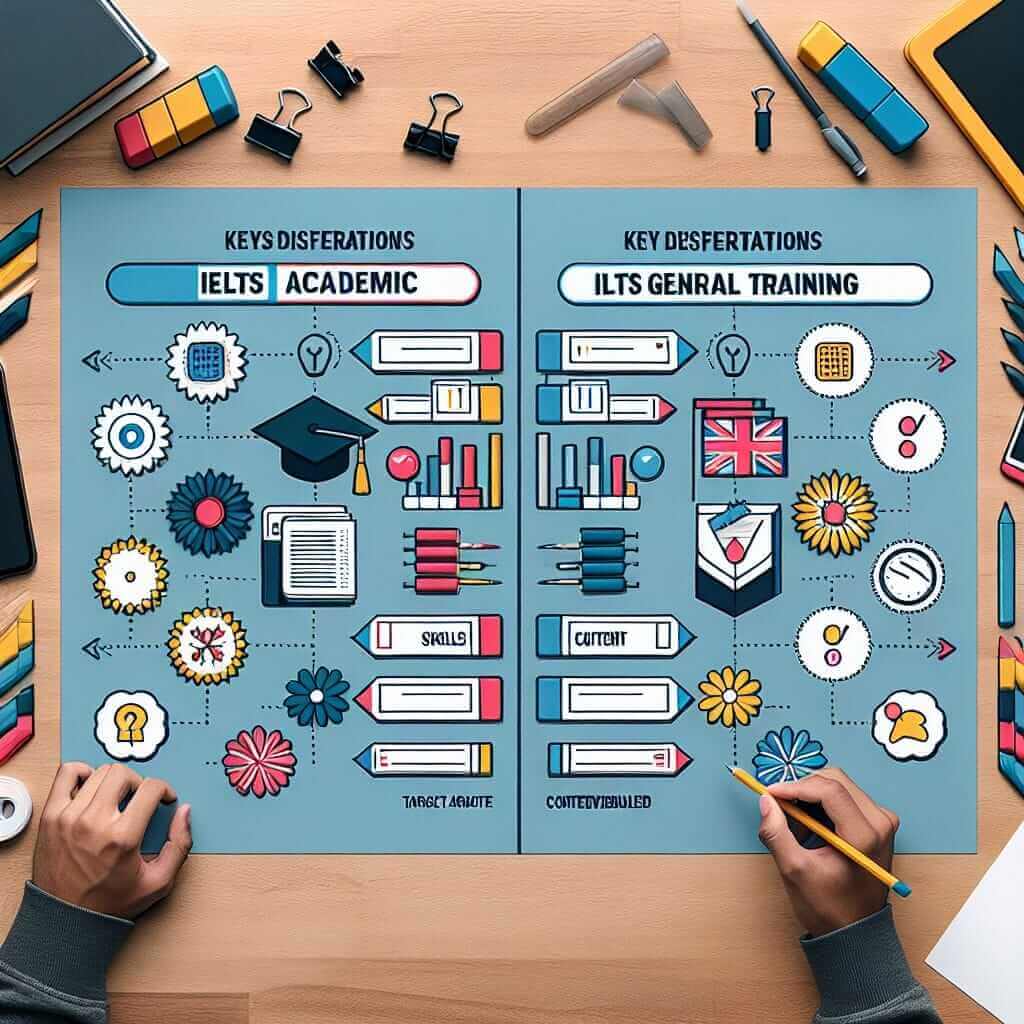The International English Language Testing System, or IELTS, is a globally recognized English proficiency test. With two versions available, IELTS Academic and IELTS General Training, test-takers often find themselves wondering: is one easier than the other? This is a question I frequently encounter as an IELTS instructor with over 20 years of experience, and the answer, as with many things in life, is nuanced.
Understanding the Core Difference: Purpose
The key to understanding the perceived difficulty lies in the purpose behind each test:
- IELTS Academic: Designed for those wishing to pursue higher education in an English-speaking environment. It assesses your ability to understand academic language, analyze data, and construct logical arguments.
- IELTS General Training: Intended for individuals migrating to an English-speaking country or seeking work experience. It focuses on everyday English communication skills needed for social survival and workplace interaction.

Comparing the Sections: Similarities and Variations
Both IELTS versions assess your English proficiency across four sections: Listening, Reading, Writing, and Speaking. However, the content and style within these sections differ:
1. Listening:
- Similarities: Both tests use the same format with four audio recordings of varying accents.
- Variations: IELTS General Training often includes conversations related to everyday situations, while IELTS Academic may feature lectures or academic discussions.
2. Reading:
- Similarities: Both tests assess reading comprehension skills.
- Variations: IELTS Academic presents longer, complex texts with an academic focus. In contrast, IELTS General Training includes shorter texts like advertisements, notices, or work-related documents.
3. Writing:
- Similarities: Both tests require two writing tasks.
- Variations: Task 1 differs significantly. IELTS Academic requires describing a graph, chart, or diagram, whereas IELTS General Training involves writing a letter in a personal, semi-formal, or formal style. Task 2, an essay, remains similar in format, though topics might differ slightly in theme.
4. Speaking:
- Similarities: This section, a face-to-face interview, remains identical in both versions.
So, is IELTS General Training Easier?
It’s not accurate to label one version as inherently “easier.” The level of difficulty depends on your individual strengths and weaknesses. For example:
- Strong academic background: Individuals accustomed to analyzing data and understanding academic texts might find IELTS Academic more manageable.
- Strong practical communication skills: Those comfortable with everyday conversations and writing in a clear, concise manner might lean towards IELTS General Training.
Tips for Success, Regardless of the Version
No matter which IELTS test you choose, these tips can aid your preparation:
- Understand the test format: Familiarize yourself with the structure and timing of each section.
- Practice regularly: Consistent practice with sample tests is crucial.
- Develop your vocabulary: A strong vocabulary is essential for all sections.
- Focus on fluency and coherence: Practice speaking and writing in a clear, organized manner.
- Seek feedback: Get your practice tests evaluated by experienced tutors to identify areas for improvement.
Conclusion
Ultimately, the “easier” IELTS version depends on your individual profile and goals. Understanding the distinct purposes and evaluating your strengths and weaknesses is key to making the right choice. Whichever path you choose, focused preparation and dedicated practice are the surest ways to achieve your desired IELTS score.